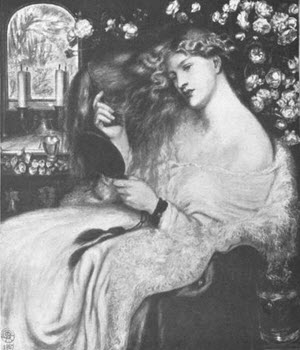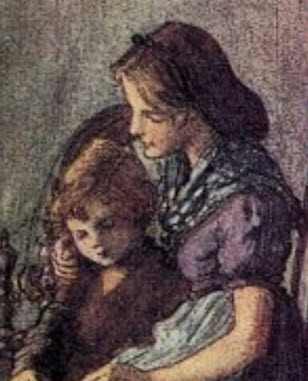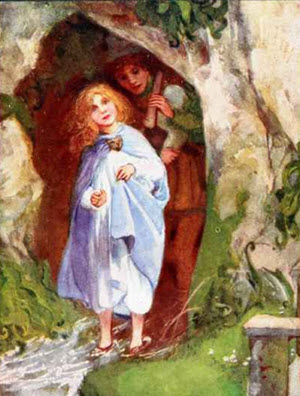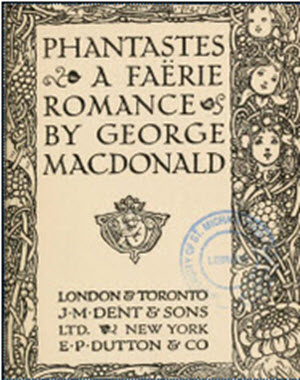THE HISTORY AND HEROES OF MEDICINE
.
[Footnote: By J. Rutherfurd Russell, M.D.]
In this volume, Dr. Russell has not merely aimed at the production of a book that might be serviceable to the Faculty, by which the history of its own art is not at all sufficiently studied, but has aspired to the far more difficult success of writing a history of medicine which shall be readable to all who care for true history—that history, namely, in which not merely growth and change are represented, but the secret supplies and influences as well, which minister to the one and occasion the other. If the difficulty has been greater (although with his evidently wide sympathies and keen insight into humanity we doubt if it has), the success is the more honourable; for a success it certainly is. The partially biographical plan on which he has constructed his work has no doubt aided in the accomplishment of this purpose; for it is much easier to present the subject in its human relations, when its history is given in connexion with the lives of those who were most immediately associated with it. But it would be a great mistake to conclude from this, that it is the less a history of the art itself; for no art or science has life in itself, apart from the minds which foresee, discover, and verify it. Whatever point in its progress it may have reached, it will there remain until a new man appears, whose new questions shall illicit new replies from nature—replies which are the essential food of the science, by which it lives, grows, and makes itself a history.
Nor must our readers suppose that because the book is readable, it is therefore slight, either in material or construction. Much reading and research have provided the material, while real thought and argument have superintended the construction. Nor is it by any means without the adornment that a poetic temperament and a keen sense of humour can supply.
Naturally, the central life in the book is that of Lord Bacon, the man who brought out of his treasures things both new and old. Up to him the story gradually leads from the prehistoric times of Aesculapius, the pathway first becoming plainly visible in the life and labours of Hippocrates. His fine intellect and powers of acute observation afforded the material necessary for the making of a true physician. The Greek mind, partly, perhaps, from its artistic tendencies, seems to have been peculiarly impatient of incomplete forms, and therefore, to have much preferred the construction of a theory from the most shadowy material, to the patient experiment and investigation necessary for the procuring of the real substance; and Hippocrates, not knowing how to advance to a theory by rational experiment, and too honest to invent one, assumes the traditional theories, founded on the vaguest and most obtrusive generalizations. Those which his experience taught him to reject, were adopted and maintained by Galen and all who followed him for centuries, the chief instance of progress being only the substitution by the Arabians of some of the milder medicines now in use, for the terrible and often fatal drugs employed by the Greek and Roman physicians. The fanciful classification of diseases into four kinds—hot, cold, moist and dry, with the corresponding arbitrary classification of remedies to be administered by contraries, continued to be the only recognized theory of medicine for many centuries after the Christian era.
But Lord Bacon, amongst other branches of knowledge which he considers ill-followed, makes especial mention of medicine, which he would submit to the same rules of observation and experiment laid down by him for the advancement of learning in general. With regard to it, as with regard to the discovery of all the higher laws of nature, he considers “that men have made too untimely a departure, and too remote a recess from particulars.” Men have hurried to conclusions, and then argued from them as from facts. Therefore let us have no traditional theories, and make none for ourselves but such as are revealed in the form of laws to the patient investigator, who has “straightened and held fast Proteus, that he might be compelled to change his shapes,” and so reveal his nature. Hence one of the aspects in which Lord Bacon was compelled to appear was that of a destroyer of what preceded. In this he resembled Cardan and Paracelsus who went before him, and who like him pulled down, but could not, like him, build up. He resembled them, however, in the possession of another element of character, namely, that poetic imagination which looks abroad into the regions of possibilities, and foresees or invents. But in the case of the charlatan, the vaguest suggestions of his mind in its favourite mood, is adopted as a theory all but proved, if not as a direct revelation to the favoured individual; while the true thinker seeks but an hypothesis corresponding in some measure to facts already discovered, in order that he may have the suggestion of new experiments and investigations in the course of his attempts to verify or disprove the hypothesis. Lord Bacon considered hypothesis invaluable in the discovery of truth, but he only used it as a board upon which to write his questions to nature; or, to use another figure, hypothesis with him is as the next stepping-stone in the swollen river, which he supposes to be here or there, and so feels for with his staff. But it must be proved before it be regarded as a law, and greatly corroborated before it be even adopted as a theory. Cardan and Paracelsus were destroyers and mystics only; they destroyed on the earth that they might build in the air: Lord Bacon united both characters in the philosopher. He looked abroad into the regions of the unknown, whence all knowledge comes; he called wonder the seed of knowledge; but he would build nowhere but on the earth—on the firm land of ascertained truth. That which kept him right was his practical humanity. It was for the sake of delivering men from the ills of life, by discovering the laws of the elements amidst which that life must be led, that he laboured and thought. This object kept him true, made him able to discover the very laws of discovery; brought him so far into rapport with the heart of nature herself, that, like a physical prophet, his seeing could outspeed his knowing, and behold a law—dimly, it is true, but yet behold it—long before his intellect, which had to build bridges and find straw to make the bricks, could dare to affirm its approach to the same conclusion. Truth to humanity made him true to fact; and truth to fact made him true in theory.
It was in this spirit of devotion to his kind that he said, “Therefore here is the deficience which I find, that physicians have not ... set down and delivered over certain experimental medicines for the cure of particular diseases.”
Dr. Russell’s true insight into the relation of Lord Bacon to the medical as well as to all science, has suggested the above remarks. What our author chiefly desires is, that the same principles which made medicine what it is, should be allowed to carry it yet further, and make it what it ought to be, and must become. As he goes on to show, through succeeding lives and theories, that just in proportion as these principles have been followed—the principles of careful observation, hypothesis, and experiment—have men made discoveries that have been helpful to their fellow-men; while, on the other hand, the most elaborate theories of the most popular physicians, which have owed their birth to premature generalization and invention, have passed away, like the crackling of thorns under a pot. Belonging to the latter class of men, we have Stahl, Hoffman, Boerhaave, Cullen, and Brown; while to the former belong Harvey, Sydenham, Jenner, and Hahnemann.
After the last name, there is no need to say that our author is a homoeopath. Whatever may be our private opinion of the system, justice requires that we should say at least that books such as these are quite as open to refutation as to ridicule; for it is only a good argument that is worth refuting by a better. But we fear there are few books on this subject that treat of it with the calmness and fairness which would incline an honest homoeopath to put them into the hands of one of the opposite party as an exposition of his opinions. There is no excitement in these pages. They are the work of a man of liberal education, of refinement, and of truthfulness, with power to understand, and facility to express; one of whose main objects is to vindicate for homoeopathy, on the most rightful of all grounds—those on which alone science can stand—on the ground, that is, of laws discovered by observation and experiment—the place not only of a fact in the history of medicine, but the right to be considered as one of the greatest advances towards the establishment of a science of curing. Certainly if he and the rest of its advocates should fail utterly in this, the heresy will yet have established for itself a memorial in history, as one of the most powerful illusions that have ever deceived both priests and people. But the chief advantage which the system will derive from Dr. Russell’s book will spring, it seems to us, from his attempt—a successful one it must be confessed—to prove that homoeopathy is a development, and not a mere reaction; that it has its roots far down in the history of science. The first mention of it in the book, however, is made for the purpose of disavowing the claim, advanced by many homoeopathists, to Hippocrates as one of their order. Not to mention the curious story about Galen and the patient ill from an overdose of theriacum, who was cured by another dose of the same substance, nor the ridicule of the doctrine of contraries by Paracelsus and Van Helmont, nor the fact that the contraries of Boerhaave, by his own explanation, merely signify whatever substances prove their contrariety to the disease by curing it—to pass by these, we find one of the main objects of homoeopathy, the discovery of specifics, insisted upon by Lord Bacon in his words already quoted. Not that homoeopaths, while they depend upon specifics, believe that there is any such thing as a specific for a disease—a disease being as various as the individuality of the human beings whom it may attack; but that an approximate specific may be found for every well-defined stage in every individual disease; a disease having its process of change, development, and decline, like a vegetable or animal life. Besides an equally strong desire for specifics, and a determined opposition to compound medicines, Boyle, who was born the year of Bacon’s death, and inherited the mantle of the great philosopher, manifests a strong belief in the power of the infinitesimal dose. Neither Bacon nor Boyle, however, were medical men by profession. But Sydenham followed them, according to Dr. Russell, in their tendency towards specifics. It is almost needless to mention Jenner’s victory over the small-pox as, in the eyes of the homoeopaths, a grand step in the development of their system. It gives Dr. Russell an opportunity of showing in a strong instance that the best discoveries for delivering mankind from those ills even of which they are most sensible have been received with derision, with more than bare unbelief. This is one of his objects in the book, and while it is no proof whatever of the truth of homoepathy, it shows at least that the opposition manifested to it is no proof of its falsehood. This is enough; for it seeks to be tried on its own merits; and its foes are bound to accord it this when it is advocated in such an honest and dignified manner as in the book before us.
The need of man, in physics as well as in higher things, is the guide to truth. With evils of any sort we need no further acquaintance than may be gained in the endeavour to combat them. The discovery of what will cure diseases seems the only natural mode of rising by generalization to the discovery of the laws of cure and the nature of disease.
Those portions of the volume which discuss the influence of Christianity on the healing art, likewise those relating to the different feelings with which at different times in different countries physicians have been regarded, are especially interesting.
The only portion of the book we should be inclined to find fault with, as to the quality of the thought expended upon it, is the dissertation in the second chapter on the [Greek: psuchae] and [Greek: pneuma]. We doubt likewise whether the author gives the Archaeus of Van Helmont quite fair play; but these are questions so purely theoretical that they scarcely admit of discussion here. We rise from the perusal of the book, whatever may be our feelings with regard to the truth or falsehood of the system it advocates, with increased respect for the profession of medicine, with enlarged hope for its future, and with a strong feeling of the nobility conferred by the art upon every one of its practitioners who is aware of the dignity of his calling.




